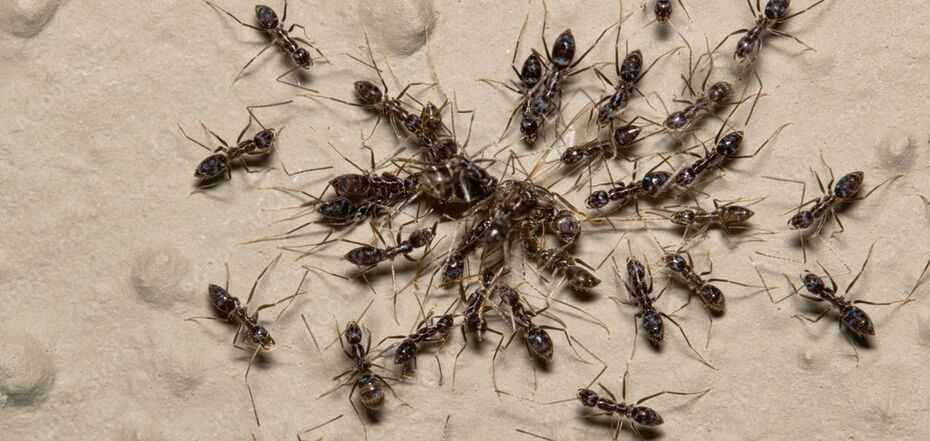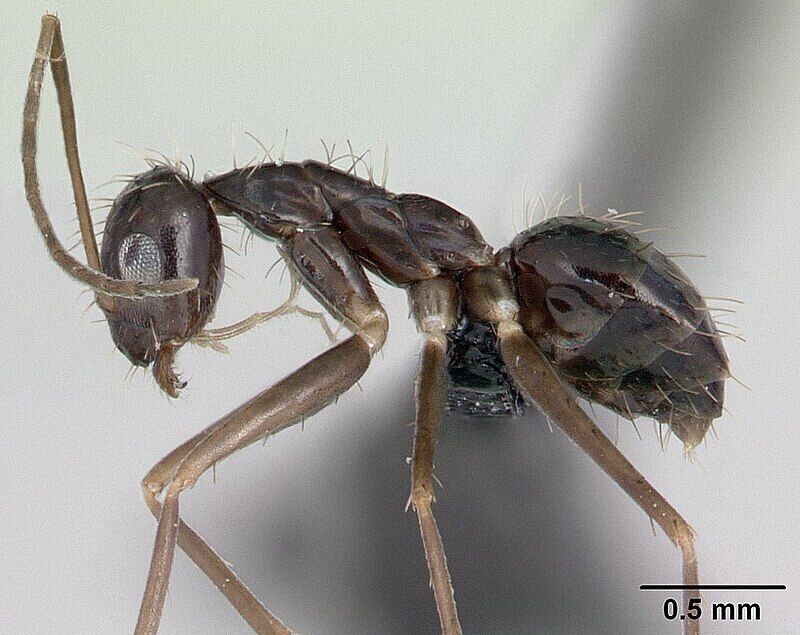News
Group intelligence of ants proved to be better than human intelligence: what the maze experiment showed
Ants are known to be very social creatures that always work and support each other in groups. These insects and humans are the only creatures in nature that constantly cooperate when transporting large loads that are much larger than their size.
However, ants proved to be better than humans in a group problem-solving experiment in a maze. The surprising results shed new light on group decision-making, as well as on the pros and cons of cooperation compared to working alone, Phys.org writes.
Professor Ofer Feinerman and his team from the Weizmann Institute of Science used the social trait of ants to conduct an evolutionary competition that asks the question: who is better at maneuvering a large load through a maze?
The piano puzzle
A research team led by Tabea Dreyer created a real-world version of the "piano moving puzzle," a classic computational problem in motion planning and robotics that deals with possible ways to move.
Instead of a piano, the participants in the experiment were given a large T-shaped object that they had to maneuver through a rectangular space divided into three chambers connected by two narrow slits.
The researchers created two sets of mazes that differed only in size to match the size of ants and humans.
The ants chosen for the competition were from a species of black ants, about 3 mm long, Paratrechina longicornis, which are common around the world. These insects have long antennae. They are sometimes called "crazy ants" for their tendency to run around.
Interestingly, the ants solved the maze problem in three combinations: one ant, a small group of about seven ants, and a large group of about 80. People coped with the task in three parallel combinations: one person, a small group of six to nine people, and a large group of 26 people, experts say.
To make comparisons, the large groups of people were in some cases instructed to avoid communicating through speech or gestures, even wearing surgical masks and sunglasses to hide their mouths and eyes.
In addition, the people involved were told to hold the load only by handles that mimicked the way ants held it. The handles had force gauges that each participant applied during the attempt.
The researchers repeated the experiment many times for each combination, then carefully analyzed the video and all the extended tracking data using computer simulations and various physical models.
Experimental results
Unsurprisingly, the cognitive abilities of the humans gave them an advantage in the individual challenge, in which they resorted to calculated strategic planning and easily outperformed the ants.
In the group challenge, however, the picture was quite different, especially for larger groups, the researchers say. Groups of ants not only performed better than individual ants, but in some cases, they were better than humans. After all, the insect groups acted together in a calculated and strategic way, demonstrating a collective memory that helped them persistently stick to a particular direction and avoid repeated mistakes.
On the contrary, people failed to significantly increase their productivity when working in groups. When communication between group members was limited, their productivity dropped. According to the scientists, they tended to choose solutions that seemed attractive in the short term but were not profitable in the long term.
"An ant colony is a family and they have common interests. It is a tight-knit society in which cooperation far outweighs competition. That's why an ant colony is sometimes called a superorganism, a kind of living body consisting of several 'cells' that cooperate with each other," said Feinerman.
According to the scientists, the results of the study confirmed the superpowers of ants. "We have shown that ants are smarter when acting as a group because for them the whole is greater than the sum of its parts. Instead, the formation of groups has not expanded the cognitive abilities of people," summarized Professor Ofer Feinerman.
Only verified information is available on the OBOZ.UA Telegram channel and Viber. Do not fall for fakes!





























